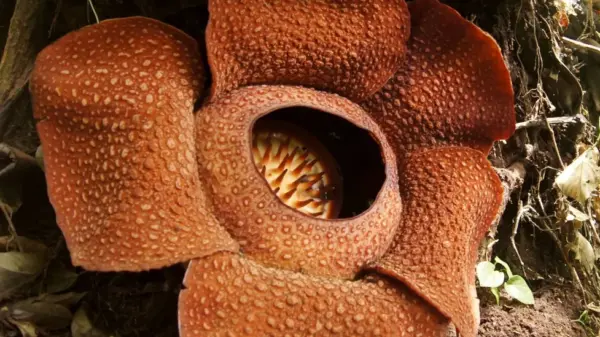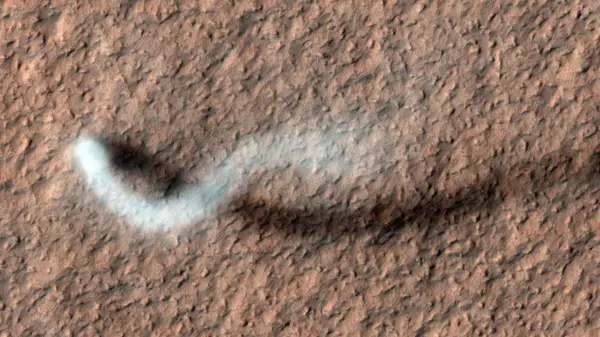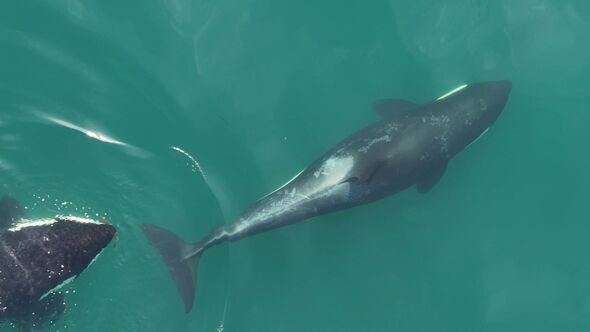Orcas have displayed a remarkable new behavior by using seaweed as tools during grooming rituals, according to a recent study led by the Centre for Whale Research (CWR) and the University of Exeter. This groundbreaking discovery reveals that these intelligent marine mammals, known for their complex social structures, have been observed crafting tools from kelp to facilitate back-scratching and enhance their grooming sessions.
The research, published in the journal Current Biology, documents instances where orcas were seen selecting and manipulating pieces of kelp to massage each other. Utilizing drone footage captured over the Salish Sea in Washington state, scientists recorded southern resident killer whales engaging in this inventive behavior, which appears to reinforce social bonds among individuals.
New Insights into Orca Behavior
Lead researcher Dr. Michael Weiss expressed his amazement at the sophistication of this behavior. While it is known that whale species often engage in “kelping,” where they play with kelp for fun or potential health benefits, this study identifies a distinct behavior termed “allokelping.” In allokelping, two or more whales collaborate to select and utilize kelp as a grooming tool, showcasing an impressive level of social interaction.
Dr. Weiss noted the physical properties of bull kelp, stating, “The bull kelp stalk is firm but flexible, like a filled garden hose, with a slippery outer surface. I suspect these features make it an ideal grooming tool.” He also highlighted the widespread nature of this behavior across various age groups, saying, “Males and females of all life stages and from all three southern resident pods were seen using kelp in this way. All evidence points to it being an important part of their social lives.”
The research team observed allokelping during eight out of twelve days of study, indicating its prevalence among these orcas. Interestingly, the whales appeared to prefer engaging in this behavior with close maternal relatives or peers, underscoring the role of social connections in their lives.
Technological Advances Enhance Observations
Postgraduate student Rachel John from the University of Exeter, who specializes in animal behavior, emphasized the significance of the long-term study of this orca population, which has been under observation for over fifty years. She remarked, “This population of whales has been formally studied for 50 years – the best-studied orcas on the planet – and yet major new discoveries can still be made.”
John pointed out that advancements in technology have played a crucial role in revealing this behavior. “We hadn’t noticed allokelping before because the videos from our previous aircraft weren’t of good enough quality, but now, we’re capturing this behavior in fantastic detail,” she added.
Professor Darren Croft, also from the University of Exeter and the executive director of CWR, elaborated on the potential reasons behind orcas indulging in allokelping. He noted, “We know touch is really important. In primates – including humans – touch moderates stress and helps to build relationships.” He further explained that while killer whales naturally make physical contact within their groups, the use of kelp may enhance these interactions, enriching their social experiences.
This study not only adds a new layer to our understanding of orca behavior but also highlights the intricate social structures and relationships that characterize these fascinating marine mammals. As researchers continue to explore the depths of orca intelligence and social dynamics, there is no telling what other remarkable behaviors may be uncovered in the future.



































































